Air quality and home pollution
Take a deep breath! Air quality and home pollution
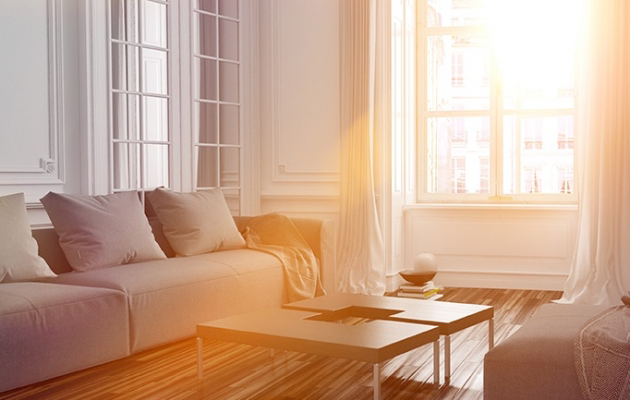
Do you suffer from asthma or allergies? Do you live in the middle of the city and wonder what the quality of the air you breathe? Helpling helps you, not only in finding the right attendant for your home, but also collecting some tips to improve the air in the spaces in which you live. Let's start with a fundamental piece of news: did you know that the air inside the house can be more polluted than the air inside ? More than the center of Milan, more than the Grande Raccordo Anulare?
Some news about home pollution
The pollution inside the rooms has three main sources:
The first is us, simply: our daily activities (such as cleaning with chemicals), our detergents and perfumes, air fresheners, cigarette smoke. All these elements are at the origin of the presence of numerous organic particles that develop in the air . These particles can cause allergic reactions, respiratory problems and numerous other negative effects that are still difficult to evaluate.
The second cause depends on the materials with which our house is built : the painting on the walls, the varnishes on the furniture or the carpet on the floor are all components from which we get rid of chemical traces that can be harmful for our health.
The third cause, finally, is the heating appliances with poor maintenance , such as boilers or water heaters. Even the particles released by these appliances are a fundamental source of pollution for our home.
When we stop to think that we spend about 80% of our time inside enclosed spaces, it is easy to understand that air purity can not be taken lightly. Here, then, our tips to improve the quality of what we breathe every day.
1. Choose natural products

Where possible, we always try to replace chemicals with natural ingredients such as baking soda, vinegar or lemon. These elements are not only good for the environment, but they are often less expensive and just as effective than the products we buy in supermarkets. Chemical cleaners (especially those for the washing machine, dishwasher or floors) can easily trigger respiratory allergies because of their components.
2. Airing the rooms every day
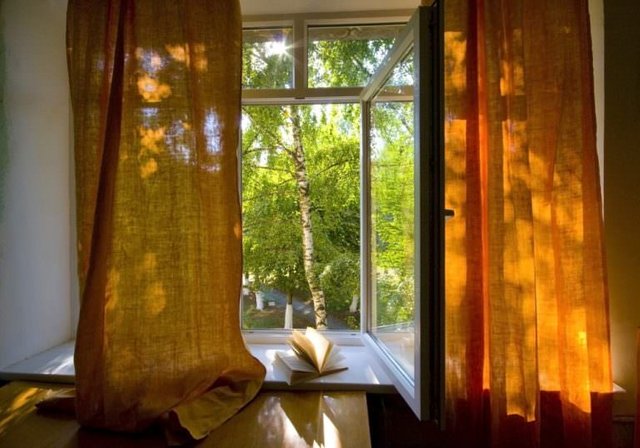
Open windows at least 10 minutes every day (even better 10 minutes in the morning and 10 in the evening) allows you to renew the air and to limit humidity (responsible for the formation of mold and numerous respiratory problems). It would be a good idea to ventilate the rooms even after a shower or after doing chores or jobs. To eliminate allergens, in addition, regularly vacuum the carpets and rugs , whisk blankets and pillows and wash the curtains.
3. Purchase of plants
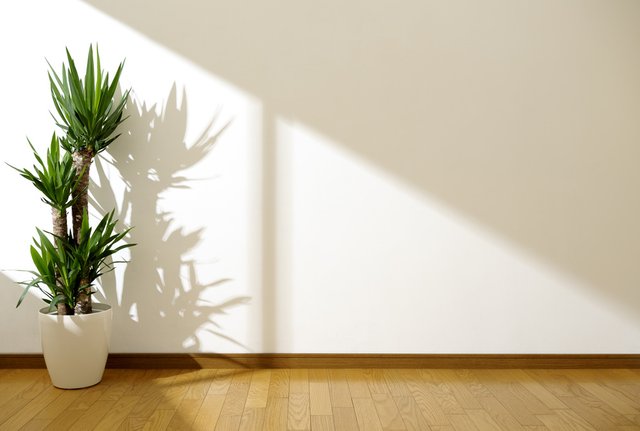
Plants have a very practical property: they reduce the levels of toxic substances and form a protective barrier that prevents the propagation of polluting agents. Our favorites are chlorophyte and ficus. The latter, in particular, neutralizes the chemical vapors exhaled from carpet adhesives, dry-cleaned clothes or rolls of absorbent paper. Obviously, the plants also allow you to decorate your rooms in a natural and inexpensive way : put them in the kitchen, where many chemicals are used, or on the balcony to protect the house from external pollution.
4. Decorate with eco-friendly materials
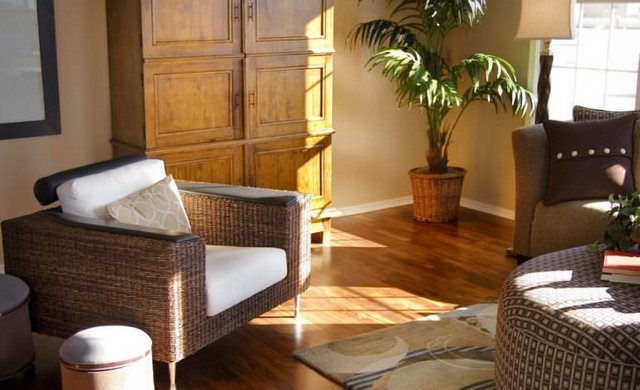
Pay attention to the paint you choose to paint the walls or furniture. It is always better to choose solvent-free paints made of gypsum, talc, citrus or other products that are not harmful to health. Also avoid laminated parquet or synthetic carpets as much as possible: there are many vegetable carpets, often aesthetically more beautiful, or solid wood parquet. Maybe you do not know it, but you could choose to put linoleum: it's simple and perfectly healthy! As for the furniture, limit the use of glues and any finishing treatment that can pollute : better raw wood and ecological paint.
5. Perfume with essential oils

The essential oils have many antibacterial, antiseptic and antiviral . To improve the quality of the air in your home, spread lavender, rosemary, lemon, grapefruit, eucalyptus or sylvan pine oils. An effective technique is to rub light bulbs with a cloth soaked in a few drops of the essential oil you prefer. The heat of the lit bulb will spread the scent throughout the room.
6. Burn the Armenian card
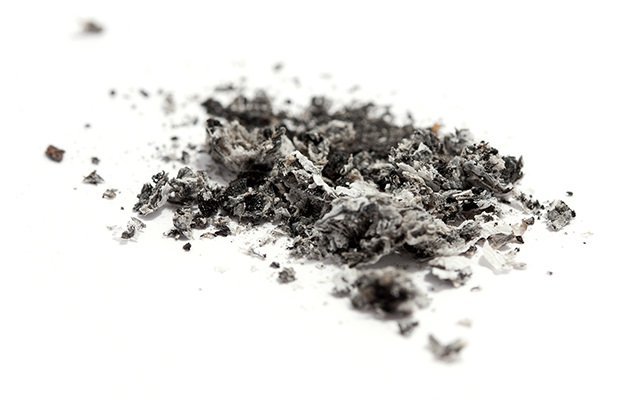
Armenia's paper has been used since ancient times to absorb room smells without using chemical deodorants , sometimes even carcinogenic. It is generally found in the form of small booklets of pink paper and each sheet is impregnated with benzoin resin. Fold the accordion sheet and let it burn (without flame and away from objects that can catch fire!): Not only has a sweet and pleasant smell, but also antiseptic, disinfectant and anti-butterfly properties. In short ... it allows you to purify the air effectively and economically !
7. Buy an air purifier
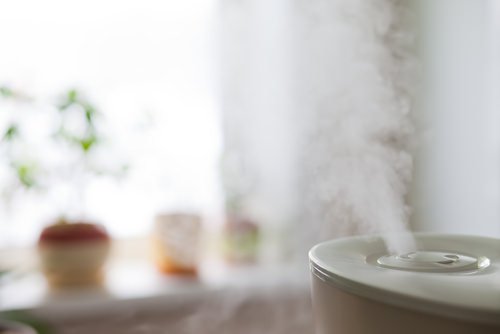
Finally, even the purchase of air purifiers could be a great help in eliminating domestic pollution: this device can, in fact, considerably reduce the effects of exposure to pollens, allergens, pollutants and even to pollutants. numerous bacteria .
Helpling partners are available to help you organize these and other tricks to make your home air cleaner and healthier. Do not wait to book a cleaning!